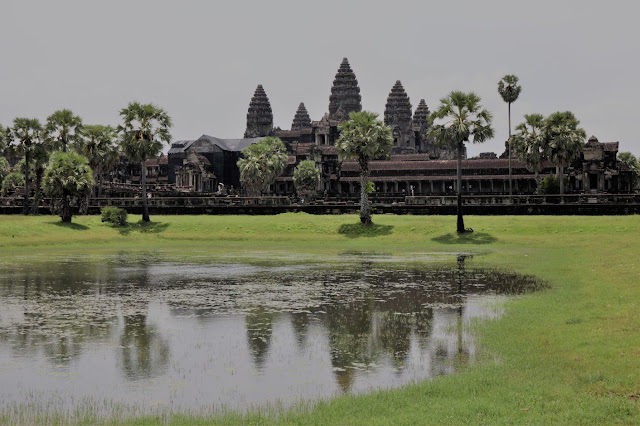Exploring
Pchum Ben Day: A Traditional Cambodian Festival
During the second half of the Georgian year, everyone in
Cambodia is excited about long holidays over Pchum Ben Day. As locals enjoy the festivities, the
foreigners learn the history and significance of Pchum Ben Day.
Let’s explore Pchum Ben Day, one of Cambodia's most
cherished cultural celebrations. In this article, we dig into the rich history,
significance, and customs associated with this unique festival. The overall aim
of the following sections is to explore Pchum Ben Day and provide you with an in-depth
understanding of the event.
What
is Pchum Ben Day?
Pchum Ben Day, also known as Ancestors' Day, is a profoundly
meaningful festival celebrated in Cambodia. The name "Pchum Ben"
translates to "Ancestors' Day" in the Khmer language, and it pays
homage to deceased relatives and ancestors. This annual observance is a time
for Cambodians to reconnect with their heritage, show respect to their
forebears, and seek blessings for their families.
Historical
Roots
The origins of Pchum Ben Day can be traced back over a
thousand years to the Angkor period, a time when Buddhism became deeply
ingrained in Cambodian culture. This festival blends elements of Theravada
Buddhism with ancient animist traditions, resulting in a unique and spiritually
significant event.
The
Timing of Pchum Ben Day
Pchum Ben Day usually falls in September or October,
depending on the lunar calendar. The festival spans for 15 days, with the main
day, known as "Prachum Ben," falling on the fifteenth day of the
tenth month. During this period, Cambodians flock to pagodas and temples across
the country to participate in various rituals and ceremonies.
Rituals
and Customs
Offering
"Bay Ben" to Ancestors
One of the most significant customs of Pchum Ben Day is the
preparation and offering of "Bay Ben." These are special food
offerings made to honor deceased relatives. Families prepare a variety of
delicious dishes and take them to the pagodas to offer to monks, who in turn
dedicate the merit of these offerings to the deceased.
The
"Dana" Ceremony
Another important ritual is the "Dana" ceremony,
where people make charitable donations to monks and temples. This act of giving
is believed to bring blessings and good fortune to the living and the departed.
Paying
Respects Through Prayers
Throughout the festival, Cambodians visit pagodas and
temples to offer prayers, light incense, and meditate. It's a time for
introspection and connecting with one's spirituality, as well as seeking
blessings for the well-being of family and friends.
The
Significance of Pchum Ben Day
Pchum Ben Day holds immense cultural and spiritual
significance for the Cambodian people. It's not merely a religious observance
but a cultural heritage deeply rooted in their identity. This festival
reinforces the importance of family, remembrance of ancestors, and the belief
in the cycle of life and death.
The
Feast of Pchum Ben
Apart from the spiritual aspects, Pchum Ben Day also
features a grand feast. Families come together to enjoy sumptuous meals, and
it's a time of joy and togetherness. Traditional Cambodian dishes like
"Somlar Kari Saek Mouan" (Pumpkin Soup) and "Nom Krok" (Coconut
Rice Pancakes) are commonly prepared during this festive period.
Final Words on Exploring Pchum Ben Day
Pchum Ben Day is a remarkable festival that reflects the
cultural and spiritual richness of Cambodia. With its deep-rooted traditions,
meaningful rituals, and a strong sense of community, this festival is a
testament to the enduring spirit of the Cambodian people. It's a celebration of
life, family, and the eternal connection with their ancestors.





